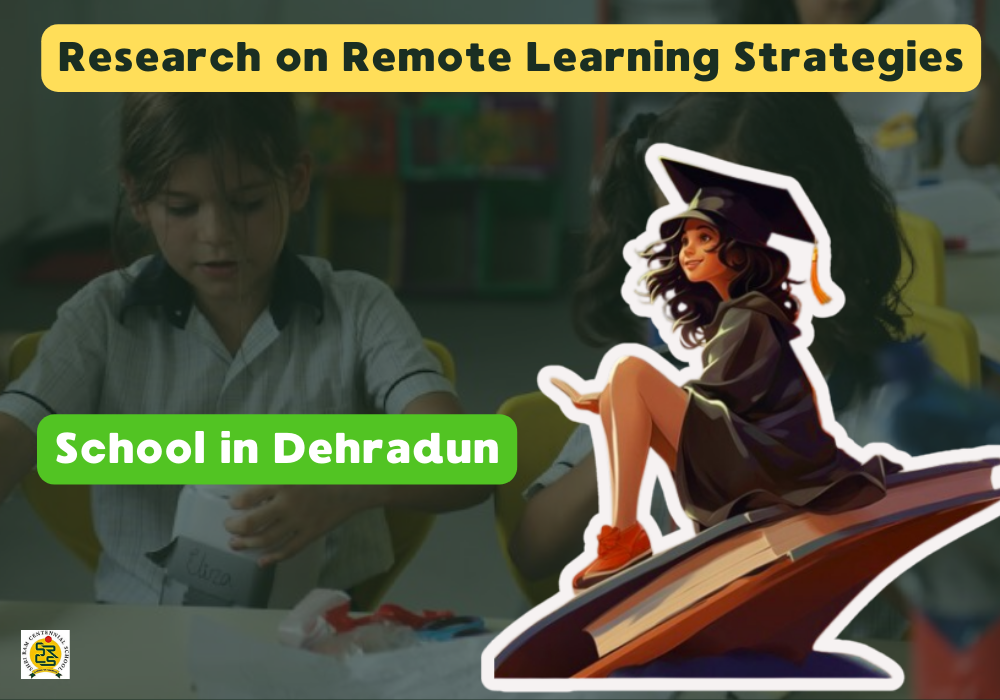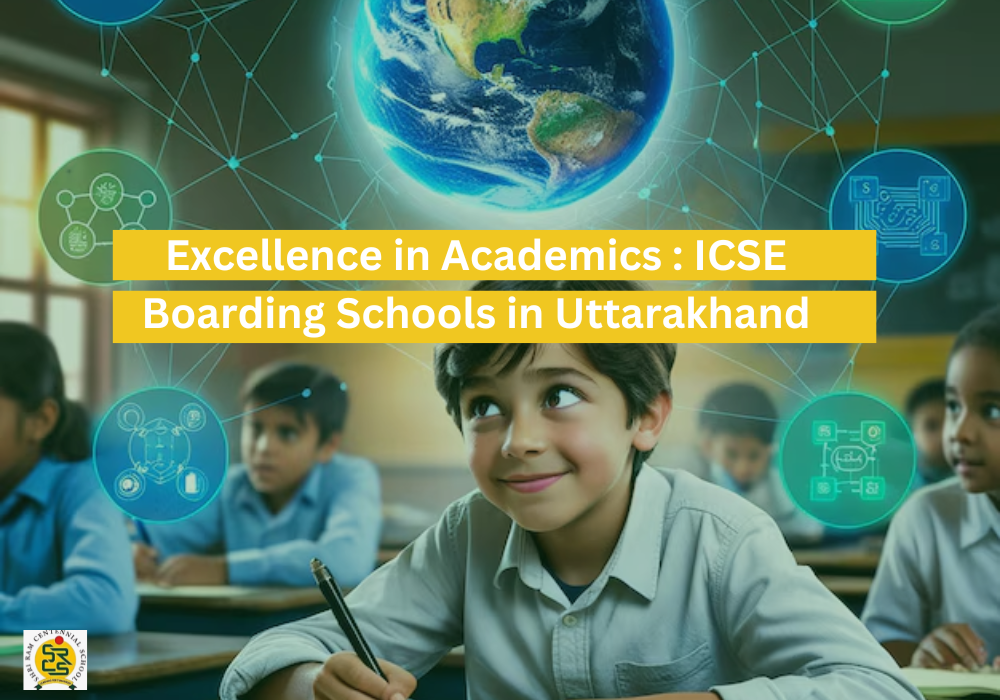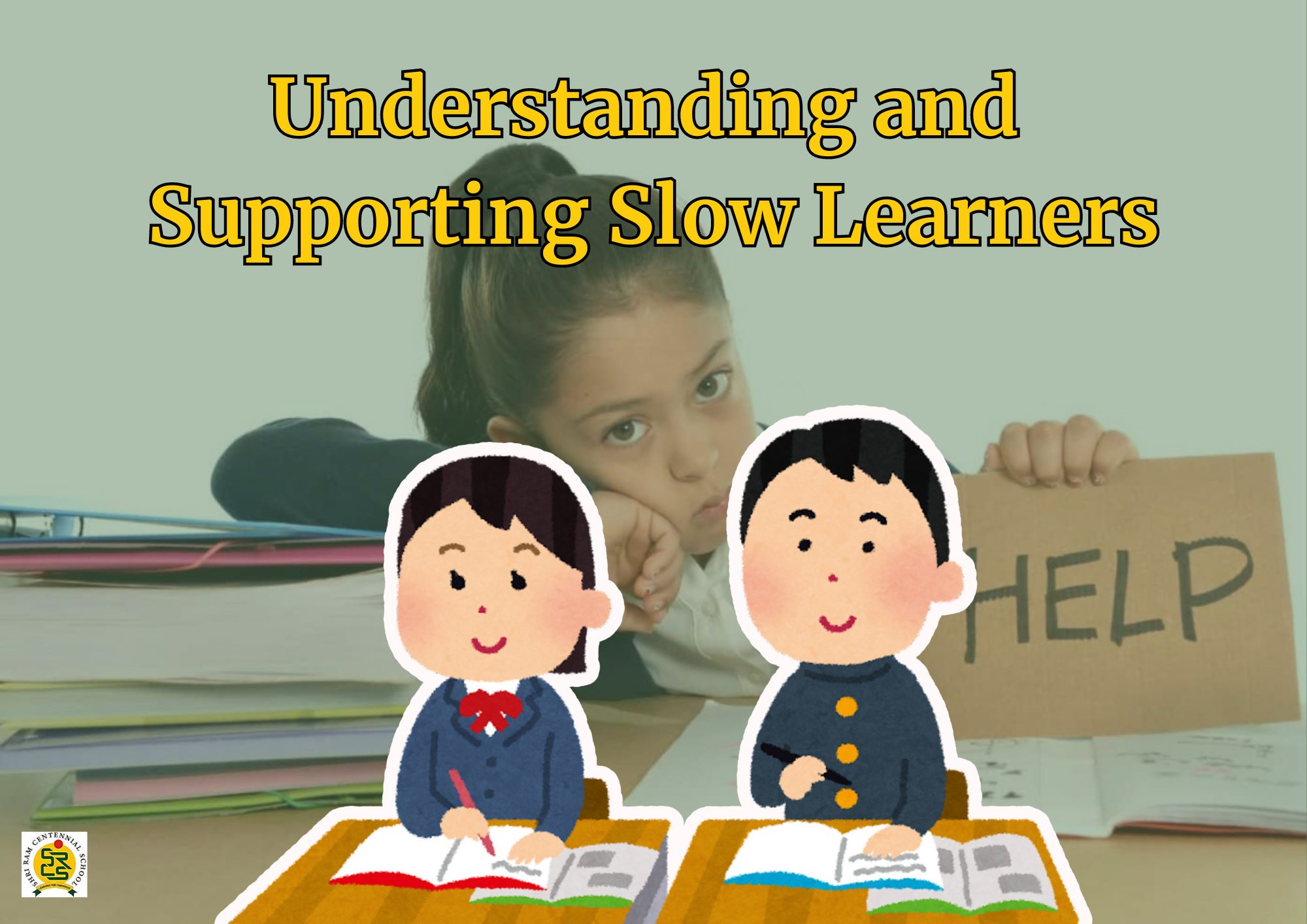The COVID-19 pandemic sent shockwaves across the globe, disrupting every facet of life as we knew it. Educational institutions were not spared, forced to grapple with the unprecedented challenge of transitioning to remote learning environments. In Dehradun, India, the Shri Ram Centennial School (SRCS) rose to the occasion, demonstrating remarkable adaptability and resilience.
This article delves into the groundbreaking research conducted by SRCS faculty members, exploring how they navigated the complexities of remote learning and ensured continued academic excellence for their students. We will explore the innovative strategies implemented, the challenges encountered, and the valuable insights gleaned from this transformative experience.
The Initial Impact of COVID-19 on Education: Remote Learning

The sudden shift to remote learning presented a multitude of challenges for educational institutions worldwide. Educators, accustomed to the dynamism of in-person classrooms, had to rapidly acquire new skills and adapt their teaching methods to a virtual setting. Students, used to the structure and social interaction of a physical school environment, had to adjust to a new way of learning, often facing distractions and a lack of motivation in their home environments.
SRCS Faculty Spearheads Research on Remote Learning Strategies

Recognizing the gravity of the situation, a dedicated team of SRCS faculty members embarked on a research initiative aimed at optimizing the remote learning experience for both students and teachers. Their research focused on several key areas:
- Effective Pedagogical Practices for Online Learning: The faculty explored innovative teaching methodologies specifically designed for the online environment. This included leveraging interactive tools, incorporating multimedia content, and fostering active learning strategies to keep students engaged.
- Utilizing Technology to Enhance Learning: The research team investigated the potential of various educational technologies to facilitate remote learning. This involved exploring online learning platforms, video conferencing tools, and collaborative learning applications to create a dynamic and interactive virtual classroom experience.
- Promoting Student Wellbeing and Motivation: The faculty recognized the importance of addressing the social and emotional needs of students during this isolating time. Their research explored strategies to foster a sense of community and belonging in the virtual classroom, while also promoting self-care and well-being practices for students.
- Evaluating Student Learning and Assessment: Developing effective assessment strategies for the online environment was crucial. The faculty explored alternative assessment methods that went beyond traditional exams, such as online quizzes, portfolios, and project-based learning activities.
Groundbreaking Findings and Implemented Strategies
The research conducted by the SRCS faculty yielded valuable insights that were translated into practical strategies for remote learning. Here are some key highlights:
- Focus on Micro-learning and Active Engagement: The research found that shorter, focused lessons with opportunities for active participation were more effective in the online environment. SRCS faculty implemented micro-learning modules, incorporated breakout sessions for group discussions, and utilized online polls and quizzes to keep students engaged.
- Personalized Learning and Differentiation: The faculty recognized the importance of catering to the individual needs of students in a remote setting. They implemented differentiated instruction strategies, providing students with personalized learning materials and activities that catered to their diverse learning styles.
- Building a Strong Online Learning Community: To combat feelings of isolation, SRCS faculty fostered a strong sense of community in the virtual classroom. They utilized online forums for discussions, encouraged virtual social events, and implemented online mentorship programs to connect students with teachers and peers.
- Leveraging Technology for Assessment: The faculty explored various online assessment tools to effectively evaluate student learning. This included online quizzes with automated grading, collaborative projects with peer assessment components, and e-portfolios that showcased student progress over time.
Challenges Faced and Lessons Learned

Despite the success of their research and implementation, the SRCS faculty also encountered challenges during the transition to remote learning. These included:
- Ensuring Equitable Access to Technology: Not all students had access to reliable internet connectivity and devices, creating a potential barrier to participation. SRCS addressed this by providing loaner devices to students in need and partnering with local organizations to improve internet access in underserved communities.
- Combating Digital Fatigue and Attention Spans: Extended screen time can lead to fatigue and difficulty focusing. The faculty addressed this by incorporating regular breaks into online lessons, encouraging students to take short walks or engage in physical activity in between sessions.
- Maintaining Student Motivation and Engagement: Keeping students motivated and engaged in a virtual setting can be challenging. SRCS faculty addressed this by incorporating gamification elements into their lessons, providing opportunities for student choice and autonomy, and fostering a positive and supportive online learning environment.
The experience of remote learning at SRCS has yielded valuable lessons that can be applied to educational institutions worldwide. The importance of faculty development, the strategic use of technology, and a focus on student well-being are all crucial factors for success in a remote learning environment.
Conclusion
The COVID-19 pandemic prompted schools in Dehradun, including the Shri Ram Centennial School (SRCS), to pioneer remote learning. Through innovative strategies, SRCS ensured academic continuity and student well-being. Key takeaways: adaptability, tech integration, equity, student well-being. Lessons from SRCS’s experience shape a more resilient education system worldwide.
The success of SRCS’s remote learning program holds valuable lessons for educators worldwide. Here are some key takeaways:
- Adaptability and Innovation are Key: Educational institutions must be prepared to adapt to unforeseen circumstances. Investing in faculty development programs that equip teachers with the skills and knowledge to thrive in online environments is crucial.
- Embrace Technology, but Prioritize Human Connection: Technology can be a powerful tool for remote learning, but it should never replace human interaction. Fostering a sense of community and belonging in the virtual classroom is essential for student motivation and well-being.
- Focus on Equity and Inclusion: Not all students have equal access to technology and resources. Educational institutions must strive to bridge the digital divide and ensure that all students have the opportunity to succeed in a remote learning environment.
- Student Well-being is Paramount: The social and emotional well-being of students is just as important as academic achievement. Educators must prioritize strategies that promote self-care, combat isolation, and create a supportive online learning environment.
The COVID-19 pandemic may have disrupted traditional education, but it also presented an opportunity for innovation and growth. The groundbreaking research conducted by SRCS faculty members serves as a testament to the power of resilience, adaptability, and a commitment to student success. As educational institutions around the world move forward, the valuable lessons learned from SRCS’s remote learning experience can pave the way for a more robust and equitable education system, prepared to face any challenge that may come its way.










